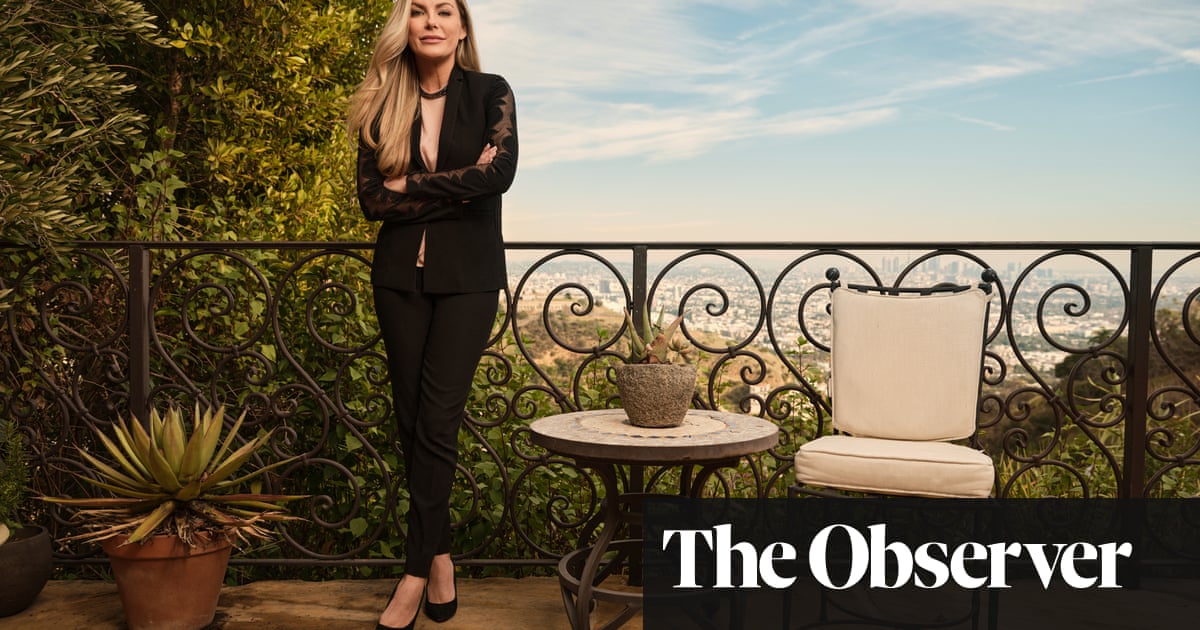
Dandy, a 28-year-old alternative pop musician from Shropshire, has every reason to be angry. An abusive relationship in her early 20s left her powerless, she says, while the deaths of thousands of fellow disabled people under the benefits system have filled her with pain and rage.
In Their Shoes, the lead single from her self-recorded, self-produced debut album, The Cycle, excoriates this “broken system that’s rigged to lose” with portraits of characters such as Mary: “When she’s at the assessment / She holds her pride / As they ask why she hasn’t / Pursued suicide.”
Despite her incisive lyrics, writing this unsparingly didn’t come naturally, Dandy says over a Zoom call. “Anger is an emotion that I had to learn how to feel, and I had to learn how to channel artistically or productively. I think that’s a huge problem for a lot of people, and I think particularly disabled people.”
Discovering her voice has earned her a staunch following. She has 15,000 followers on Instagram, where she shares her own candid and comedic illustrations on comments that she’s tired of seeing and hearing as a queer, disabled young person. Her attitude is the same in person, as she laughs at her own frankness.
“We feel we don’t have a right to be as angry as we should be, that we need to sit back and be the good disabled people who are really thankful for the handouts,” she adds. “I feel so much frustration about that, because all of the disabled people I know are fantastic, incredible people. We need them: they add so much vibrancy to the world, and we’re so often reduced to being a so-called ‘burden’.”
Dandy’s haunting piano melodies, inspired by her “lifelong hero” Kate Bush, recently caught the attention of BBC Introducing. She’s hoping her music travels further – energised by the striking fact that there are no popular musicians signed to a major label who use a wheelchair.
Even among working disabled musicians, a survey by arts access charity Attitude Is Everything (AIE) found that two-thirds had compromised their health or wellbeing to perform live; 70% said they had withheld information about their health condition due to stigma and concerns over working relationships. Those who have disclosed access requirements said they were often ignored or not taken seriously.
“Artists and musicians with chronic illnesses are frequently met with attitudinal barriers, which stem from a lack of understanding about what it is actually like to manage a health condition day in, day out,” says AIE artist development manager Rich Legate. “They do not see the planning, the rest, the wellbeing tactics.”
Diagnosed in 2018 with myalgic encephalomyelitis (ME), life suddenly slowed down for Dandy. It led to the once-reserved artist developing a renewed sense of determination. “I would honestly say that I probably would have gone through the rest of my life really struggling with my confidence if I hadn’t become disabled,” she admits. “I had to become confident in a wheelchair, with people staring at me and interrogating me when I’m trying to buy bog roll.”
After spending 18 months in bed, she says, she stopped caring about what other people thought. “When everything is stripped away, you go, ‘OK, what is fundamentally important to me?’ And that was art and music.”
Diving into songwriting after her diagnosis, Dandy took inspiration from Bush, Tori Amos and Pink Floyd’s The Wall. “It’s so politicised,” she says of the latter. “There’s so much reflection on society and the ills in our society, and it’s done in such a clever way that people can sort of interpret it in all sorts of different ways.”
Creating The Cycle presented its own set of challenges. “Rather than focusing on one song at a time, I did a lot of flitting between,” says Dandy. “Another thing my ME has caused is I’ve lost my rhythm, and I didn’t believe that that was a thing that you could lose. I thought that was an innate thing that either you had or you didn’t, but mine is just terrible.” She meticulously tapped out drum patterns on GarageBand, as part of a creative process that she shared on her Instagram.
Dandy says she tried gaining attention for her music by emailing industry professionals, only to be met with what she describes as a “wall of nothingness”. It ended up being beneficial, she says, leading her to create work that is wholly authentic to her voice. I ask her what’s stopped past musicians from finding mainstream success. “Firstly, it’s accessibility,” she says.
A 2019 AIE survey found that concert venues were frequently failing to provide adequate access and facilities. After the lifting of Covid-19 restrictions allowed live music and theatre to return, disabled and chronically ill musicians have said they remain shut out of gigs and festivals. “We can’t get into studios, we can’t get into venues, we can’t get into all of these places that we need to to produce our music,” she adds.
Secondly, she continues, “I think labels perceive it as a risk – and again, there’s no other examples of it.” Yet with her “angry album”, Dandy isn’t standing down. “I realised how incredibly useful [anger] is, and how many people need to hear that. I hope people listen to [the album], and realise that those are emotions they’re allowed to have when terrible things happen to them.”












